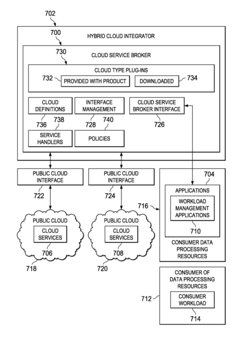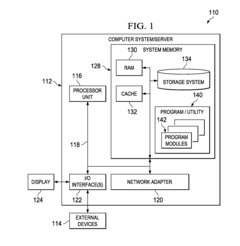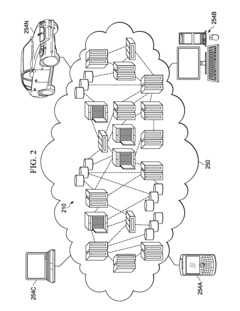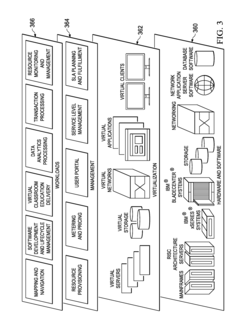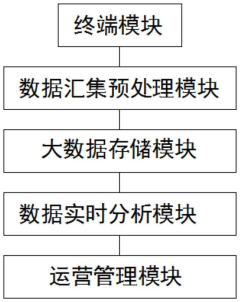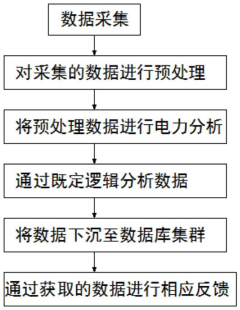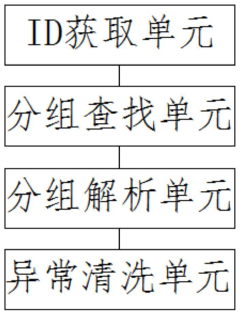Hybrid Cloud Solutions for Battery Management Systems' Data Processing
AUG 8, 20259 MIN READ
Generate Your Research Report Instantly with AI Agent
Patsnap Eureka helps you evaluate technical feasibility & market potential.
BMS Hybrid Cloud Background
Battery Management Systems (BMS) have become increasingly crucial in the era of electrification, particularly in the automotive and energy storage sectors. As the complexity and scale of battery systems grow, so does the volume of data generated and processed by BMS. This surge in data has led to the exploration of hybrid cloud solutions as a means to enhance the efficiency, scalability, and reliability of BMS data processing.
The concept of hybrid cloud for BMS data processing emerged from the need to balance the advantages of both on-premises and cloud-based infrastructures. On-premises systems offer low latency and direct control over sensitive data, which is critical for real-time BMS operations. Cloud platforms, on the other hand, provide scalable computing resources and advanced analytics capabilities that can handle large volumes of historical and aggregated data.
The evolution of BMS technology has been closely tied to advancements in battery chemistry, electronic control systems, and data analytics. Early BMS designs focused primarily on basic monitoring and protection functions. However, as batteries became more sophisticated and their applications more diverse, the role of BMS expanded to include complex algorithms for state estimation, predictive maintenance, and performance optimization.
The integration of cloud computing into BMS architecture represents a significant leap forward in this technological progression. It allows for the offloading of computationally intensive tasks, such as machine learning-based predictive analytics and large-scale data mining, to powerful cloud servers. This integration has opened up new possibilities for improving battery life, enhancing safety, and optimizing overall system performance.
The hybrid cloud approach for BMS data processing aims to create a seamless integration between local, edge, and cloud computing resources. This model leverages the strengths of each component: local systems for real-time control and immediate response, edge computing for data preprocessing and aggregation, and cloud platforms for deep analytics and long-term data storage.
As the electric vehicle market expands and renewable energy storage systems become more prevalent, the demand for sophisticated BMS solutions continues to grow. The hybrid cloud model is positioned to address the challenges of managing increasingly complex battery systems across diverse applications, from individual vehicles to large-scale grid storage installations.
The adoption of hybrid cloud solutions in BMS data processing is driven by several factors, including the need for improved scalability, enhanced data security, and the ability to implement advanced analytics and machine learning algorithms. These solutions promise to unlock new levels of performance and efficiency in battery management, potentially revolutionizing how we approach energy storage and utilization in various industries.
The concept of hybrid cloud for BMS data processing emerged from the need to balance the advantages of both on-premises and cloud-based infrastructures. On-premises systems offer low latency and direct control over sensitive data, which is critical for real-time BMS operations. Cloud platforms, on the other hand, provide scalable computing resources and advanced analytics capabilities that can handle large volumes of historical and aggregated data.
The evolution of BMS technology has been closely tied to advancements in battery chemistry, electronic control systems, and data analytics. Early BMS designs focused primarily on basic monitoring and protection functions. However, as batteries became more sophisticated and their applications more diverse, the role of BMS expanded to include complex algorithms for state estimation, predictive maintenance, and performance optimization.
The integration of cloud computing into BMS architecture represents a significant leap forward in this technological progression. It allows for the offloading of computationally intensive tasks, such as machine learning-based predictive analytics and large-scale data mining, to powerful cloud servers. This integration has opened up new possibilities for improving battery life, enhancing safety, and optimizing overall system performance.
The hybrid cloud approach for BMS data processing aims to create a seamless integration between local, edge, and cloud computing resources. This model leverages the strengths of each component: local systems for real-time control and immediate response, edge computing for data preprocessing and aggregation, and cloud platforms for deep analytics and long-term data storage.
As the electric vehicle market expands and renewable energy storage systems become more prevalent, the demand for sophisticated BMS solutions continues to grow. The hybrid cloud model is positioned to address the challenges of managing increasingly complex battery systems across diverse applications, from individual vehicles to large-scale grid storage installations.
The adoption of hybrid cloud solutions in BMS data processing is driven by several factors, including the need for improved scalability, enhanced data security, and the ability to implement advanced analytics and machine learning algorithms. These solutions promise to unlock new levels of performance and efficiency in battery management, potentially revolutionizing how we approach energy storage and utilization in various industries.
BMS Data Market Analysis
The Battery Management System (BMS) data market is experiencing significant growth, driven by the increasing adoption of electric vehicles (EVs) and renewable energy storage systems. As the demand for more efficient and reliable battery systems rises, the need for sophisticated data processing and management solutions becomes paramount.
The global BMS market is projected to expand rapidly in the coming years, with a compound annual growth rate (CAGR) exceeding 20% through 2026. This growth is primarily fueled by the automotive sector, particularly the EV segment, which is witnessing unprecedented expansion due to environmental concerns and government incentives. The energy storage sector, including grid-scale and residential applications, is also contributing substantially to this market growth.
In terms of regional distribution, Asia-Pacific leads the BMS data market, with China at the forefront due to its dominant position in EV production and battery manufacturing. North America and Europe follow closely, driven by stringent emission regulations and increasing investments in renewable energy infrastructure.
The demand for BMS data processing solutions is evolving rapidly, with a growing emphasis on real-time monitoring, predictive maintenance, and performance optimization. Cloud-based solutions are gaining traction due to their scalability and cost-effectiveness. However, concerns about data security and latency have led to increased interest in hybrid cloud architectures, which combine the benefits of both public and private cloud environments.
Key market drivers include the need for improved battery life and performance, enhanced safety features, and the integration of artificial intelligence and machine learning algorithms for advanced analytics. The automotive industry, in particular, is pushing for more sophisticated BMS solutions to extend EV range, reduce charging times, and improve overall vehicle performance.
Challenges in the BMS data market include the need for standardization across different battery chemistries and form factors, ensuring data privacy and security, and managing the increasing volume and complexity of battery-related data. These challenges present opportunities for innovative solutions, particularly in the realm of hybrid cloud architectures that can address both performance and security concerns.
The market is also seeing a shift towards more integrated BMS solutions that combine hardware and software components, offering end-to-end data management capabilities. This trend is driven by the need for seamless integration with other vehicle systems and energy management platforms.
As the BMS data market continues to evolve, there is a growing demand for solutions that can handle the increasing complexity of battery systems while providing actionable insights to improve efficiency and reliability. The development of hybrid cloud solutions for BMS data processing represents a significant opportunity to address these market needs and drive innovation in the rapidly expanding electric mobility and energy storage sectors.
The global BMS market is projected to expand rapidly in the coming years, with a compound annual growth rate (CAGR) exceeding 20% through 2026. This growth is primarily fueled by the automotive sector, particularly the EV segment, which is witnessing unprecedented expansion due to environmental concerns and government incentives. The energy storage sector, including grid-scale and residential applications, is also contributing substantially to this market growth.
In terms of regional distribution, Asia-Pacific leads the BMS data market, with China at the forefront due to its dominant position in EV production and battery manufacturing. North America and Europe follow closely, driven by stringent emission regulations and increasing investments in renewable energy infrastructure.
The demand for BMS data processing solutions is evolving rapidly, with a growing emphasis on real-time monitoring, predictive maintenance, and performance optimization. Cloud-based solutions are gaining traction due to their scalability and cost-effectiveness. However, concerns about data security and latency have led to increased interest in hybrid cloud architectures, which combine the benefits of both public and private cloud environments.
Key market drivers include the need for improved battery life and performance, enhanced safety features, and the integration of artificial intelligence and machine learning algorithms for advanced analytics. The automotive industry, in particular, is pushing for more sophisticated BMS solutions to extend EV range, reduce charging times, and improve overall vehicle performance.
Challenges in the BMS data market include the need for standardization across different battery chemistries and form factors, ensuring data privacy and security, and managing the increasing volume and complexity of battery-related data. These challenges present opportunities for innovative solutions, particularly in the realm of hybrid cloud architectures that can address both performance and security concerns.
The market is also seeing a shift towards more integrated BMS solutions that combine hardware and software components, offering end-to-end data management capabilities. This trend is driven by the need for seamless integration with other vehicle systems and energy management platforms.
As the BMS data market continues to evolve, there is a growing demand for solutions that can handle the increasing complexity of battery systems while providing actionable insights to improve efficiency and reliability. The development of hybrid cloud solutions for BMS data processing represents a significant opportunity to address these market needs and drive innovation in the rapidly expanding electric mobility and energy storage sectors.
Hybrid Cloud BMS Challenges
The implementation of hybrid cloud solutions for Battery Management Systems (BMS) data processing presents several significant challenges. One of the primary obstacles is ensuring seamless integration between on-premises infrastructure and cloud-based services. This integration must maintain data consistency, security, and real-time accessibility across both environments, which can be complex due to the diverse nature of BMS data and the need for low-latency processing.
Data security and privacy concerns pose another major challenge. BMS data often contains sensitive information about battery performance, vehicle usage patterns, and potentially personal user data. Ensuring this data remains protected while in transit between on-premises systems and cloud platforms, as well as when stored in the cloud, requires robust encryption methods and stringent access controls. Compliance with various regional data protection regulations adds another layer of complexity to this challenge.
Scalability and performance optimization present ongoing difficulties in hybrid cloud BMS implementations. As the number of connected vehicles and the volume of data generated by BMS increase, the hybrid cloud infrastructure must be able to scale dynamically to handle peak loads without compromising performance. This requires careful capacity planning and the implementation of efficient load balancing mechanisms between on-premises and cloud resources.
Network latency and bandwidth limitations can significantly impact the effectiveness of hybrid cloud solutions for BMS data processing. Real-time data analysis and rapid response times are crucial for many BMS applications, such as battery health monitoring and predictive maintenance. Overcoming network-related challenges to ensure timely data transfer and processing across the hybrid environment is essential for maintaining the system's overall performance and reliability.
Cost management in hybrid cloud deployments for BMS data processing can be complex. While cloud services offer flexibility and scalability, they can also lead to unpredictable costs if not managed properly. Balancing the use of on-premises resources with cloud services to optimize costs while meeting performance requirements requires continuous monitoring and adjustment of resource allocation strategies.
Ensuring high availability and disaster recovery in a hybrid cloud environment presents unique challenges for BMS applications. Designing redundant systems that span both on-premises and cloud infrastructure, while maintaining data consistency and minimizing downtime during failovers, requires sophisticated architectural planning and implementation.
Lastly, the management and orchestration of workloads across the hybrid cloud environment can be challenging. Developing effective strategies for deciding which BMS data processing tasks should be performed on-premises versus in the cloud, based on factors such as data sensitivity, processing requirements, and cost considerations, requires advanced automation and orchestration tools. This challenge is further complicated by the need to maintain visibility and control over the entire hybrid infrastructure to ensure optimal performance and resource utilization.
Data security and privacy concerns pose another major challenge. BMS data often contains sensitive information about battery performance, vehicle usage patterns, and potentially personal user data. Ensuring this data remains protected while in transit between on-premises systems and cloud platforms, as well as when stored in the cloud, requires robust encryption methods and stringent access controls. Compliance with various regional data protection regulations adds another layer of complexity to this challenge.
Scalability and performance optimization present ongoing difficulties in hybrid cloud BMS implementations. As the number of connected vehicles and the volume of data generated by BMS increase, the hybrid cloud infrastructure must be able to scale dynamically to handle peak loads without compromising performance. This requires careful capacity planning and the implementation of efficient load balancing mechanisms between on-premises and cloud resources.
Network latency and bandwidth limitations can significantly impact the effectiveness of hybrid cloud solutions for BMS data processing. Real-time data analysis and rapid response times are crucial for many BMS applications, such as battery health monitoring and predictive maintenance. Overcoming network-related challenges to ensure timely data transfer and processing across the hybrid environment is essential for maintaining the system's overall performance and reliability.
Cost management in hybrid cloud deployments for BMS data processing can be complex. While cloud services offer flexibility and scalability, they can also lead to unpredictable costs if not managed properly. Balancing the use of on-premises resources with cloud services to optimize costs while meeting performance requirements requires continuous monitoring and adjustment of resource allocation strategies.
Ensuring high availability and disaster recovery in a hybrid cloud environment presents unique challenges for BMS applications. Designing redundant systems that span both on-premises and cloud infrastructure, while maintaining data consistency and minimizing downtime during failovers, requires sophisticated architectural planning and implementation.
Lastly, the management and orchestration of workloads across the hybrid cloud environment can be challenging. Developing effective strategies for deciding which BMS data processing tasks should be performed on-premises versus in the cloud, based on factors such as data sensitivity, processing requirements, and cost considerations, requires advanced automation and orchestration tools. This challenge is further complicated by the need to maintain visibility and control over the entire hybrid infrastructure to ensure optimal performance and resource utilization.
Current Hybrid BMS Solutions
01 Hybrid cloud data processing architecture
This approach involves designing a hybrid cloud architecture that integrates on-premises infrastructure with public cloud services. It allows for efficient data processing across different environments, enabling organizations to leverage the benefits of both private and public clouds. The architecture includes components for data synchronization, workload distribution, and security measures to ensure seamless operation across the hybrid environment.- Hybrid cloud data processing architecture: This approach involves designing a hybrid cloud architecture that integrates on-premises infrastructure with public cloud services for efficient data processing. It allows organizations to leverage the benefits of both environments, enabling seamless data transfer, processing, and storage across the hybrid infrastructure.
- Data security and privacy in hybrid cloud environments: This focuses on implementing robust security measures and privacy controls for data processing in hybrid cloud solutions. It includes encryption, access management, and compliance mechanisms to protect sensitive information across on-premises and cloud environments.
- Workload optimization and resource allocation: This involves developing intelligent algorithms and systems for optimizing workload distribution and resource allocation in hybrid cloud environments. It aims to improve performance, reduce costs, and enhance overall efficiency of data processing tasks across the hybrid infrastructure.
- Data integration and synchronization: This focuses on creating seamless data integration and synchronization mechanisms between on-premises systems and cloud platforms in hybrid environments. It ensures consistent and up-to-date data across the entire hybrid cloud infrastructure for efficient processing and analysis.
- Scalability and flexibility in hybrid cloud data processing: This involves designing scalable and flexible hybrid cloud solutions that can adapt to changing data processing requirements. It includes auto-scaling capabilities, dynamic resource allocation, and the ability to seamlessly move workloads between on-premises and cloud environments based on demand.
02 Data migration and synchronization in hybrid clouds
This focuses on methods for efficiently moving and synchronizing data between on-premises systems and cloud environments. It includes techniques for real-time data replication, incremental data transfers, and intelligent data routing to minimize latency and optimize bandwidth usage. These solutions ensure data consistency across the hybrid cloud infrastructure while maintaining data integrity and security.Expand Specific Solutions03 Workload management and orchestration
This involves developing systems for intelligent workload distribution and management across hybrid cloud environments. It includes algorithms for load balancing, resource allocation, and task scheduling to optimize performance and cost-efficiency. The solutions also incorporate mechanisms for automated scaling and failover to ensure high availability and reliability of data processing operations.Expand Specific Solutions04 Security and compliance in hybrid cloud data processing
This addresses the challenges of maintaining data security and regulatory compliance in hybrid cloud environments. It includes techniques for data encryption, access control, and audit trails across different cloud platforms. The solutions also focus on implementing consistent security policies and ensuring data sovereignty in multi-cloud scenarios.Expand Specific Solutions05 Analytics and AI integration in hybrid clouds
This involves developing frameworks for integrating advanced analytics and artificial intelligence capabilities in hybrid cloud environments. It includes methods for distributed data processing, federated learning, and edge computing to enable real-time insights and decision-making. The solutions focus on optimizing data flows and processing pipelines to leverage the strengths of both on-premises and cloud-based analytics tools.Expand Specific Solutions
Key BMS Cloud Providers
The research on hybrid cloud solutions for Battery Management Systems' data processing is in a nascent stage, with the market showing significant growth potential. The industry is transitioning from traditional on-premises systems to cloud-based solutions, driven by the increasing complexity of battery data and the need for scalable processing capabilities. Key players like LG Energy Solution, Samsung SDI, and Hyundai Motor Co. are investing heavily in this technology, leveraging their expertise in battery manufacturing and automotive applications. The market size is expected to expand rapidly as electric vehicle adoption accelerates globally. While the technology is still evolving, early adopters are already seeing benefits in terms of improved data analytics and predictive maintenance capabilities.
LG Energy Solution Ltd.
Technical Solution: LG Energy Solution has developed a hybrid cloud-based Battery Management System (BMS) that combines on-site edge computing with cloud-based analytics. Their solution utilizes proprietary battery cell technology and advanced sensors to collect high-resolution data on battery performance and health. The edge component of the system performs real-time monitoring and basic analytics, while the cloud infrastructure handles complex modeling, predictive maintenance, and fleet-wide optimization. LG's hybrid approach allows for rapid response to critical events at the battery level while leveraging cloud computing for deep learning and big data analysis. The system employs a scalable architecture that can manage data from millions of battery cells simultaneously, providing insights across various applications from electric vehicles to grid storage [2][4]. LG's hybrid cloud BMS can process up to 100 data points per second for each battery cell, allowing for granular control and optimization of battery performance [6].
Strengths: Expertise in battery technology, scalable solution for various applications, balance between real-time processing and advanced analytics. Weaknesses: May require significant investment in infrastructure for full implementation.
Samsung SDI Co., Ltd.
Technical Solution: Samsung SDI has implemented a hybrid cloud solution for Battery Management Systems that leverages their expertise in both battery technology and electronics. Their approach combines local processing units embedded in battery packs with a cloud-based analytics platform. The local units perform real-time monitoring, thermal management, and basic fault detection, while the cloud component handles advanced diagnostics, predictive modeling, and over-the-air updates. Samsung's solution utilizes machine learning algorithms to optimize charging strategies and extend battery lifespan based on usage patterns and environmental conditions. The hybrid architecture allows for efficient data handling, with only relevant aggregated data being sent to the cloud, reducing bandwidth requirements and enhancing data privacy. Samsung's system is designed to be interoperable with various electric vehicle platforms and energy storage systems, providing a flexible solution for different applications [3][7]. The hybrid cloud BMS from Samsung can manage data from up to 1 million battery cells in a single installation, making it suitable for large-scale energy storage projects [8].
Strengths: Strong integration with Samsung's broader ecosystem, focus on data efficiency and privacy, versatile application across different sectors. Weaknesses: May have limitations in compatibility with non-Samsung hardware.
Core BMS Cloud Technologies
Hybrid Cloud Workload Management
PatentInactiveUS20120204187A1
Innovation
- A hybrid cloud integrator is introduced to provide a framework for integrating on-premise and off-premise data processing resources, enabling automatic detection of workload overflow or underflow conditions and automatically provisioning or de-provisioning resources from public clouds to maintain optimal processing capacity while ensuring security and compliance through policy-based management.
Vehicle-mounted battery management system and method based on cloud platform, server and storage medium
PatentInactiveCN114171809A
Innovation
- Design a vehicle-mounted battery management system based on a cloud platform, including a terminal module, a data collection pre-processing module, a big data storage module, a real-time data analysis module and an operation management module. Through the mobile Internet of Things and big data technology, real-time collection, pre-processing, Analyze battery data and visualize important data to achieve real-time monitoring and alarm of battery health status.
BMS Data Security Compliance
Data security compliance is a critical aspect of Battery Management Systems (BMS) in hybrid cloud environments. As BMS data processing increasingly moves to cloud platforms, ensuring compliance with various data protection regulations becomes paramount. The hybrid cloud model, which combines on-premises infrastructure with public cloud services, presents unique challenges and opportunities for BMS data security compliance.
One of the primary concerns in BMS data security compliance is the protection of sensitive information related to battery performance, vehicle usage patterns, and user data. Hybrid cloud solutions must implement robust encryption mechanisms for data at rest and in transit. This includes utilizing industry-standard encryption algorithms and key management systems that comply with regulations such as GDPR, CCPA, and industry-specific standards like ISO/SAE 21434 for automotive cybersecurity.
Access control and identity management are crucial components of BMS data security compliance in hybrid cloud environments. Implementing strong authentication mechanisms, such as multi-factor authentication and role-based access control, helps ensure that only authorized personnel can access sensitive BMS data. Additionally, regular auditing and logging of access attempts and data modifications are essential for maintaining compliance and detecting potential security breaches.
Data residency and sovereignty requirements pose significant challenges for BMS data processing in hybrid cloud environments. Many jurisdictions have strict regulations regarding the storage and processing of personal data within their borders. Hybrid cloud solutions for BMS must be designed with the flexibility to store and process data in specific geographic locations to meet these requirements. This may involve utilizing region-specific cloud services or implementing data replication strategies across multiple data centers.
Incident response and data breach notification procedures are critical aspects of BMS data security compliance. Hybrid cloud solutions should incorporate automated monitoring and alerting systems to detect potential security incidents quickly. Furthermore, clear protocols for incident response and breach notification must be established to comply with regulations such as GDPR's 72-hour breach notification requirement.
Vendor management and third-party risk assessment are essential considerations for BMS data security compliance in hybrid cloud environments. Organizations must carefully evaluate the security practices and compliance certifications of cloud service providers and other third-party vendors involved in BMS data processing. This includes reviewing SOC 2 reports, ISO 27001 certifications, and conducting regular security assessments of vendor systems and processes.
One of the primary concerns in BMS data security compliance is the protection of sensitive information related to battery performance, vehicle usage patterns, and user data. Hybrid cloud solutions must implement robust encryption mechanisms for data at rest and in transit. This includes utilizing industry-standard encryption algorithms and key management systems that comply with regulations such as GDPR, CCPA, and industry-specific standards like ISO/SAE 21434 for automotive cybersecurity.
Access control and identity management are crucial components of BMS data security compliance in hybrid cloud environments. Implementing strong authentication mechanisms, such as multi-factor authentication and role-based access control, helps ensure that only authorized personnel can access sensitive BMS data. Additionally, regular auditing and logging of access attempts and data modifications are essential for maintaining compliance and detecting potential security breaches.
Data residency and sovereignty requirements pose significant challenges for BMS data processing in hybrid cloud environments. Many jurisdictions have strict regulations regarding the storage and processing of personal data within their borders. Hybrid cloud solutions for BMS must be designed with the flexibility to store and process data in specific geographic locations to meet these requirements. This may involve utilizing region-specific cloud services or implementing data replication strategies across multiple data centers.
Incident response and data breach notification procedures are critical aspects of BMS data security compliance. Hybrid cloud solutions should incorporate automated monitoring and alerting systems to detect potential security incidents quickly. Furthermore, clear protocols for incident response and breach notification must be established to comply with regulations such as GDPR's 72-hour breach notification requirement.
Vendor management and third-party risk assessment are essential considerations for BMS data security compliance in hybrid cloud environments. Organizations must carefully evaluate the security practices and compliance certifications of cloud service providers and other third-party vendors involved in BMS data processing. This includes reviewing SOC 2 reports, ISO 27001 certifications, and conducting regular security assessments of vendor systems and processes.
BMS Cloud Cost-Benefit Analysis
The implementation of hybrid cloud solutions for Battery Management Systems (BMS) data processing requires a comprehensive cost-benefit analysis to determine its economic viability and potential advantages. This analysis considers both the financial implications and operational benefits of adopting a hybrid cloud approach for BMS data management.
From a cost perspective, the initial investment in hybrid cloud infrastructure can be substantial. This includes expenses for on-premises hardware, software licenses, and cloud service subscriptions. However, the hybrid model allows for more flexible resource allocation, potentially reducing long-term costs compared to purely on-premises or fully cloud-based solutions. Organizations can optimize their spending by leveraging public cloud resources for peak demand periods while maintaining critical data and processes on-premises.
The scalability offered by hybrid cloud solutions presents a significant benefit for BMS data processing. As electric vehicle adoption increases and battery technology evolves, the volume of data generated by BMS will grow exponentially. Hybrid cloud architectures enable companies to scale their data processing capabilities dynamically, avoiding the need for large upfront investments in hardware that may become underutilized during periods of lower demand.
Security and compliance considerations also factor into the cost-benefit equation. While public cloud providers offer robust security measures, some organizations may prefer to keep sensitive BMS data on-premises due to regulatory requirements or internal policies. The hybrid approach allows for a balance between leveraging cloud capabilities and maintaining control over critical data, potentially reducing compliance-related costs and risks.
Operational efficiency gains contribute to the benefits side of the analysis. Hybrid cloud solutions can improve data accessibility and processing speed, enabling faster insights from BMS data. This can lead to more efficient battery management, extended battery life, and improved vehicle performance – all of which translate to tangible economic benefits for both manufacturers and end-users.
Moreover, the flexibility of hybrid cloud architectures supports innovation in BMS technology. Companies can more easily experiment with advanced analytics, machine learning models, and real-time monitoring systems without the constraints of fixed on-premises infrastructure. This agility can accelerate product development cycles and time-to-market for new BMS features, potentially leading to competitive advantages and increased market share.
In conclusion, while the upfront costs of implementing a hybrid cloud solution for BMS data processing can be significant, the long-term benefits in terms of scalability, flexibility, and operational efficiency often outweigh these initial investments. Organizations must carefully evaluate their specific needs, data volumes, and regulatory environment to determine the optimal balance between on-premises and cloud resources in their hybrid architecture.
From a cost perspective, the initial investment in hybrid cloud infrastructure can be substantial. This includes expenses for on-premises hardware, software licenses, and cloud service subscriptions. However, the hybrid model allows for more flexible resource allocation, potentially reducing long-term costs compared to purely on-premises or fully cloud-based solutions. Organizations can optimize their spending by leveraging public cloud resources for peak demand periods while maintaining critical data and processes on-premises.
The scalability offered by hybrid cloud solutions presents a significant benefit for BMS data processing. As electric vehicle adoption increases and battery technology evolves, the volume of data generated by BMS will grow exponentially. Hybrid cloud architectures enable companies to scale their data processing capabilities dynamically, avoiding the need for large upfront investments in hardware that may become underutilized during periods of lower demand.
Security and compliance considerations also factor into the cost-benefit equation. While public cloud providers offer robust security measures, some organizations may prefer to keep sensitive BMS data on-premises due to regulatory requirements or internal policies. The hybrid approach allows for a balance between leveraging cloud capabilities and maintaining control over critical data, potentially reducing compliance-related costs and risks.
Operational efficiency gains contribute to the benefits side of the analysis. Hybrid cloud solutions can improve data accessibility and processing speed, enabling faster insights from BMS data. This can lead to more efficient battery management, extended battery life, and improved vehicle performance – all of which translate to tangible economic benefits for both manufacturers and end-users.
Moreover, the flexibility of hybrid cloud architectures supports innovation in BMS technology. Companies can more easily experiment with advanced analytics, machine learning models, and real-time monitoring systems without the constraints of fixed on-premises infrastructure. This agility can accelerate product development cycles and time-to-market for new BMS features, potentially leading to competitive advantages and increased market share.
In conclusion, while the upfront costs of implementing a hybrid cloud solution for BMS data processing can be significant, the long-term benefits in terms of scalability, flexibility, and operational efficiency often outweigh these initial investments. Organizations must carefully evaluate their specific needs, data volumes, and regulatory environment to determine the optimal balance between on-premises and cloud resources in their hybrid architecture.
Unlock deeper insights with Patsnap Eureka Quick Research — get a full tech report to explore trends and direct your research. Try now!
Generate Your Research Report Instantly with AI Agent
Supercharge your innovation with Patsnap Eureka AI Agent Platform!
